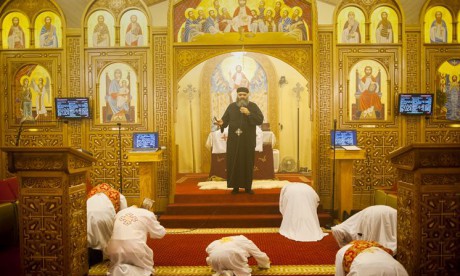One never ceases to be astonished by the huge discrepancy between one assessment of the number of Copts in Egypt and another: the figures range from 5.7 percent of the overall population (and therefore a little less than 5 million people), according to the official census taken in 1996, to the 15 percent or even 20 percent sometimes claimed by ecclesial sources. (1)
The uncertainty about the actual number of Egyptian Christians adds to the malaise that the debate about national identity fuels amongst them.
An overestimate of the Coptic population often goes hand in hand with a sort of ethno-nationalism that rejects the “Arabness” of the Egyptian Christians, the latter being considered more authentically “Egyptian” than the country’s Muslims.
In reality, the issue of the Coptic population’s weight would be less thorny if citizenship were defined in terms of rights and duties.
In this extremely delicate moment of political and social transition while the debate about Egypt’s identity is raging, however, the question of numbers becomes vital.
In any case, the Copts are unquestionably the most substantial Christian community in the Arab world today.
Less hit by the emigration phenomenon (2) than the other Christians in the Near East (at least until recently), the Copts constitute Christianity’s most vital force and a presence that is decisive for its survival in the region that saw its birth.
Islamic identity and Coptic sub-citizenship
From the beginning of the 1970s onwards, Islamist rhetoric has taken advantage of the persisting poverty and inequalities in Egypt (aggravated by a predatory and dictatorial regime) to denounce the failure of imported models and call for an integral application of Islam’s principles as the only road to national salvation. Islamist action has become manifest, in particular, in repeated acts of violence against the Copts. Continue reading
Sources
- MercatorNet, from an article by Christian Cannuyer, from the Catholic University of Louvain
- Image: Tampa Bay Times
News category: Features.




